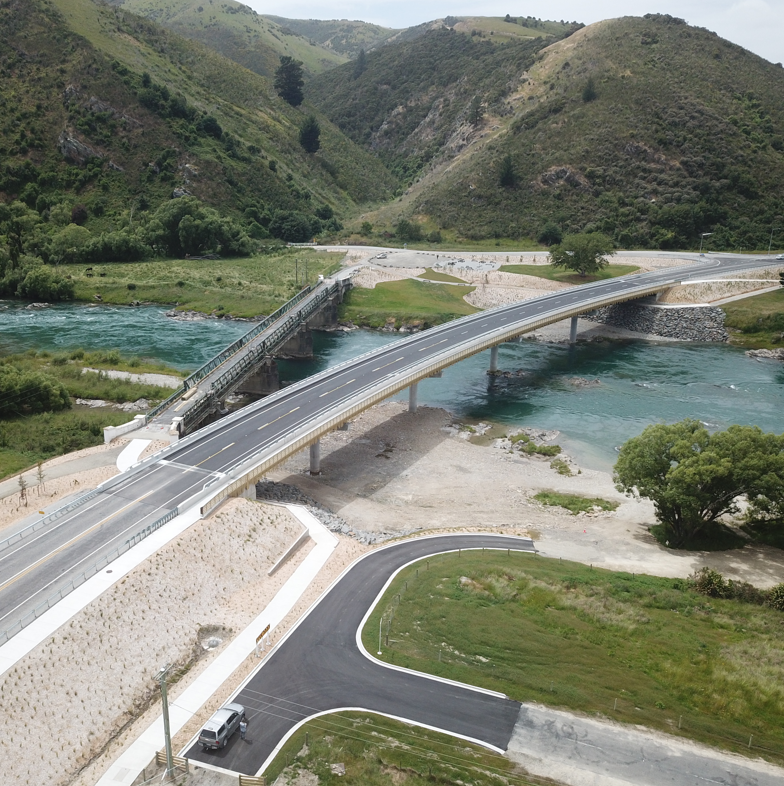The residents of Beaumont can finally breathe a sigh of relief now that the New Beaumont Bridge crossing the Clutha River is complete. This is after years of construction delays and budget overruns.
As you drive across the majestic 136-year-old single-lane bridge on State Highway 8, its newer, wider companion beckons you just downstream. However, this necessary infrastructure project did not come cheap.
Originally tendered at $25 million, the final cost of the Beaumont Bridge ballooned to $32 million, $7 million over budget. Jamie Caygill of Waka Kotahi admits multiple factors led to the blowout. “Supply chain and shipping delays increased steel prices. And unexpected ground conditions meant deeper bridge piles were required.”
Caygill explains that extra expenditures like high-grip asphalt for the frost-prone bridge deck enhanced safety and longevity. However, for many locals, what matters is that this vital crossing is complete before winter.
Bryan Cadogan, Mayor of Clutha District, does not mince words about the importance of this new span over the Clutha River. “The bridge is a lifeline, strengthening the resilience of this key highway for our economy and social connections in the region.”
Also Read: Tunelling completes on City Rail Link project in Auckland, New Zealand
The Beaumont Bridge Boondoggle
Locals like Sarah Mills are equally blunt. “The cost overruns are truly outrageous. But we desperately needed this bridge as the old one was dangerous and congested. I’m just relieved there is finally a solid crossing that will last.”
With two lanes and wide shoulders for bicycles, the new Beaumont Bridge restores free flowing access across the Clutha River. And the adjacent old bridge will be spared demolition for now, instead becoming part of the popular Clutha Gold Trail cycling route.
This small consolation replicates earlier cycling provisions made during construction. Temporary Bailey bridges ensured pedal powered transport continued unimpeded for tourists and locals alike while the main bridge was out of action.
Pedaling Past to Future Prosperity
Russell Smith, local bicycle shop owner and keen cyclist, is excited by the prospects. “The old bridge on the Gold Trail will bring more cyclists to Beaumont. My business stands to benefit, but wider economic gains are likely too.”
Russell also has a message for those irked at the Beaumont Bridge overspend. “Teething troubles are inevitable on large infrastructure projects nowadays. It’s easy to focus on the delays and dollars. But now we have a lasting asset that secures Beaumont’s future livelihood.”
So while the ballooning budget remains controversial, most Beaumont folk share Russell’s optimism and forward focus. The bridge that finally spans their economic lifeline may have come at a high cost, but ultimately enriched connections and prosperity should flow in both directions.
